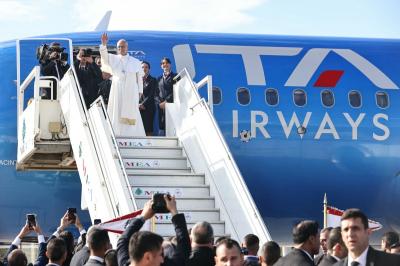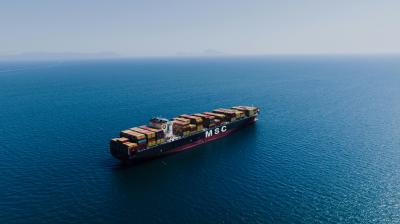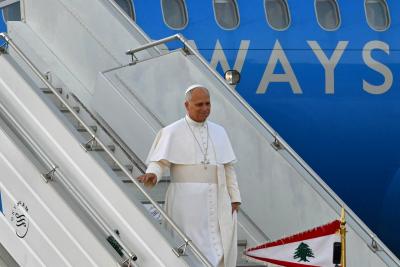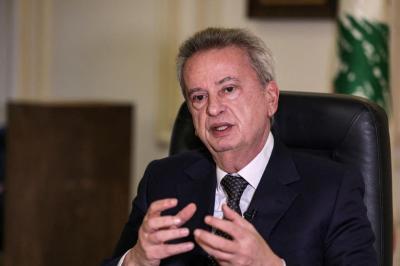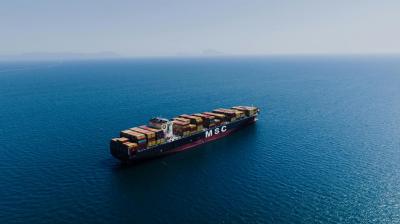French presidential envoy Jean-Yves Le Drian has sowed the seeds of three major conferences in Lebanon’s “salted soil” economy in hopes of sparking recovery. The first, dedicated to supporting the army, is clearly defined in terms of date, objectives, and funding. The other two, aimed at reconstruction and attracting investment, remain vague and unlikely to take root until Lebanon washes away the residue of its Eurobond default, exits the Financial Action Task Force’s “grey list,” and enacts the structural reforms required for an International Monetary Fund (IMF) deal.
Month after month, the assessments of Lebanon’s public debt by leading credit rating agencies—Standard & Poor’s, Moody’s, and Fitch—pass unnoticed. Beyond the occasional media reference to Lebanon’s frozen ratings since 2020 (SD or CA), there is little reaction to their meaning or consequences. Yet staying in this bracket undermines any effort to stage a genuine economic support conference for Lebanon, which would hinge on fresh financing, loans, and access to global markets.
Endless delays in debt restructuring
Since Lebanon’s official default on foreign-currency Eurobonds in March 2020, its rating has sunk to “selective default.” This classification, one notch above full default (D), reflects the fact that Lebanon has stopped servicing part of its Eurobond obligations while continuing to honor others—whether domestic debts in lira or foreign commitments to multilateral institutions like the World Bank.
Cautious optimism
In its latest note, S&P declared: “We do not expect any significant progress on debt restructuring in the near term.” Despite the pessimism, Eurobond prices in global markets rose by 19% in the past three months, trading at 22 cents to the dollar. Investors interpreted the rally as a sign that restructuring talks may be imminent.
Lebanon’s debt pile is roughly $31.3 billion, held by local banks, the central bank, and foreign funds. Its current market value, however, is only about $7 billion. Investors expect prices to climb to 25–30 cents once repayments begin, making bond purchases potentially lucrative. Driving this optimism are signals such as reduced Hezbollah dominance over domestic decision-making, early steps to place weapons under state control, passage of banking secrecy and bank restructuring laws, and hints of broader reforms.
Political roadblocks
The rally has sparked investor debate: are current prices justified? If Lebanon is moving toward restructuring and ticking off IMF preconditions one by one, do fundamentals point to further gains or setbacks?
A report by the “Leaders Club” in Lebanon Opportunities assessed Eurobond prospects, concluding that core economic reforms remain crucial for unlocking IMF support. Chief among them: a financial gap law to allocate banking sector losses. The group projected a six-month timeline to start negotiations with bondholders but warned that a final IMF deal will be postponed until after parliamentary elections in mid-2026. Historically, restructuring in emerging markets since 2000 has yielded exit yields of 9%–15%. Given Lebanon’s political and financial risks, the report set a more realistic target at 14%.
No one lends to a defaulter
Yet restructuring itself hinges on political developments that remain anything but assured. “Bond valuations may be rising, but steps toward resolution are dominated by political—not economic—factors, and stability is far from secure,” the Leaders Club cautioned. Until Lebanon restructures its debt, no lender—be it the IMF, foreign governments, or international funds—will step forward. Defaulting clients are ineligible for new financing until their risk profiles are reset, and even then, loans come with high interest rates that would deepen the fiscal burden and force new taxes in a shrinking economy, fueling stagflation.
Add to this the country’s placement on the FATF grey list for money laundering and terrorism financing, and its poor governance score of 25/100, and the prospect of meaningful donor conferences looks dim. Even if such gatherings materialize, aid and loans would be strictly conditional on reforms—just as with the 2018 CEDRE conference, when $11 billion in pledges never reached Lebanon due to reform failure.
Today, the challenge is tougher on every front. The heart of the matter remains Lebanon’s unresolved Eurobond crisis. Without a return to negotiations with creditors and a credible restructuring deal, those suspended bonds will continue to stand as the “elephant in the glass room” of Lebanon’s fragile economy.
Please post your comments on:
comment@alsafanews.com
 Politics
Politics
